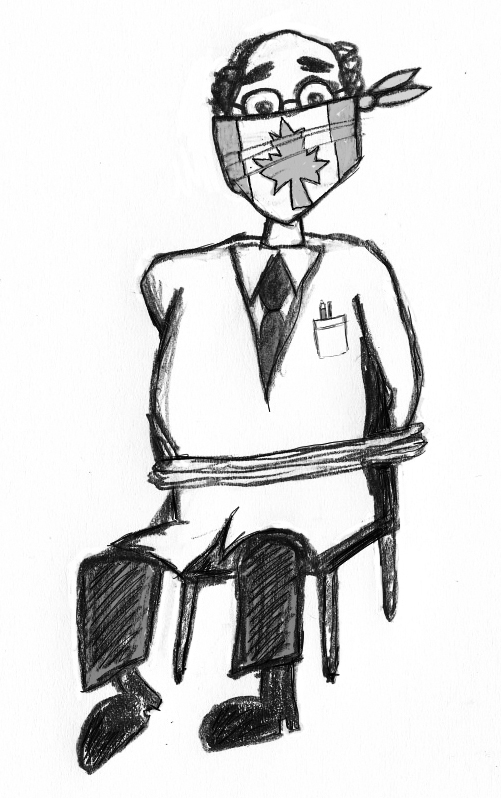Joseph is a habitual alcoholic. Each day he makes the short walk to the local beer vendor to purchase a dozen frosty beers. Because he is wise and has a distinguished palate, he chooses the cool and refreshing taste of Lucky Lager. Besides being delicious, a nice bonus to the clean crisp taste is that his beer of choice costs a paltry $15.25 a dozen.
Lucky Lager is brewed in Ontario. Semi trucks with diesel-powered engines haul trailers from the brewery to Winnipeg, where they are sent out to beer vendors on a weekly basis on another semi truck. Shipping a heavy product like beer from Ontario burns a lot of petroleum products, which releases carbon into the atmosphere.
If Joseph were strictly concerned with his carbon footprint, it would make sense for him to purchase one of the many locally brewed beers produced within city limits. However, Joseph doesn’t wake up in the morning thinking of ways that he contributes to destroying the planet on which he lives, and price is one of the considerations he makes when purchasing products. If locally produced beer was of the same price and quality as his “imported” Lucky Lager, he would definitely purchase the locally produced beer. Unfortunately, a case of locally brewed beer is $5 more than the case of Lucky.
One way for an individual or an organization to lower their carbon footprint and work toward becoming carbon neutral would be to pay the price disparity between the local beer and the one brewed in eastern Ontario, thousands of kilometers away. Carbon credit companies do the same sort of thing only on a different scale.
Carbon credit companies like Terrapass find an area of the world that could easily satisfy its electricity needs with renewable sources such as solar or wind, but chooses not to because it is cheaper to burn coal. Terrapass generates electricity from a renewable source like wind or solar and sells it to consumers on the grid at the same price as electricity from coal. The difference in price disparity is often very low.
Operating a 2007 Toyota Corolla with an automatic transmission for 20,000 kilometers a year under average driving conditions produces 3,560 kilograms of C02 per year. The cost to offset this is $50.76.
What kind of person or business would voluntarily pay to have their carbon footprint erased? Maybe someone who loses sleep at night over his or her contribution to global warming. Some tourists feel anxiety over constant flights that take them all over the world. These people sleep better at night knowing that they are not going to contribute to leaving a trashed planet for the next generation.
Businesses that want to market themselves as being carbon-neutral also purchase carbon credits. Last summer, Vespa Canada announced that it would offset an estimated three years worth of emissions for every new Vespa scooter sold. The offer is attractive to the consumer and friendly to the Earth.
Whether you are aware of it or not, carbon neutrality is hitting the mainstream and popular culture. Events such as the Super Bowl and FIFA World Cup are all carbon-neutral.
Couples are now making their wedding days carbon-neutral. It’s a big job. Wedding planners have to determine how all guests will arrive, take into consideration what they’ll be eating and where they will be staying and then write a check to offset the amount. If you are getting married and want the event to be carbon-neutral, it makes the beach side wedding in Cuba less desirable than a local event. It’s also becoming socially acceptable to decline invitations to far away events in the name of saving the Earth!
The Liberal Party of Canada claims that if they are elected that they will create a national carbon cap-and-trade system with hard targets. If a national carbon cap is implemented, it will have ramifications that affect the entire country, creating consequences for those that burn carbon-heavy fuel sources and incentives for them to convert to renewable resources that are easier on the environment.
Carbon neutral is a great goal to have, but if you don’t have enough money to eat properly or are swimming in debt, you probably aren’t going to send money to a carbon credit company. But don’t despair, my well-intentioned friend! It is possible for individuals to drastically lower their carbon footprint by examining what they eat and where it comes from, how and where they travel and even the type of beer they drink. By making informed decisions in the market place, and voting for leaders that support environmentally friendly initiatives, maybe Joseph can sleep a little better at night without compromising his ideals, or his thirst.
Steve Langston, author of Manitoba by Bicycle, is a writer who also runs his own production company.




